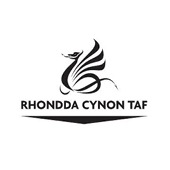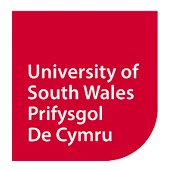In the beginning
In 1876 a group of young men met in the Butchers Arms in Pontypridd to form a rugby club in the town. Four years later Pontypridd was one of nine clubs that met at the Tenby Hotel, Swansea, to discuss the formation of a national union. One of its players, a nineteen-year-old year old medical student called Edward Llewellyn Treharne, played in the first international match between a Welsh XV and England on 19th February 1881.
In its early years the club had a peripatetic existence, playing at various times at Ynysangharad and Trallwn Fields, the People’s Park in Mill Street, and at the famous Taff Vale Park. The final Welsh trial was held there in December 1892 “to encourage the rising valley club.” In 1908 Ponty settled at Ynysangharad Park, and stayed there for 66 years.
Tom Williams was our second international, in 1882, and later served on the WRU committee as vice-president and selector. Ack Llewellyn also became an important figure in the Welsh game, as a referee and administrator. Ernest George was Pontypridd’s third international, in 1895 and 1896, and Duncan McGregor was captain of the Pontypridd side in 1906-07 and played in all Scotland’s matches in 1907, when they won the Triple Crown.
When rugby started up again after The Great War, Pontypridd had “no ground, no kit and not a penny to their name,” and the man chiefly responsible for steering Pontypridd through these difficult years was D.G. (‘Dai’) Williams, who was Chairman of the club for over 30 years.
The road to Sardis
After the Second World War Pontypridd battled to maintain ‘first class’ status, and also fought a constant battle with the local authorities to improve the facilities at Ynysangharad Park. The teams changed in the swimming baths, two hundred yards from the field, and there was no proper terracing or grandstand.
The unofficial headquarters of the club was the Greyhound Inn, but in the 1960-61 season it opened a new clubhouse, near the northern entrance to Ynysangharad Park, and it would remain its headquarters until May 1971. Although regarded as an ‘unfashionable’ club, Pontypridd regularly figured in the top ten of the unofficial championship, and won the competition for the first time in the 1962-63 season under skipper Eddie Jones.
The first ‘superstar’ after the war was Glyn Davies, who first played for Wales in 1946 when he was still a schoolboy, and then got eleven caps between 1947 and 1951. Then Russell Robins, regarded as a World class back row forward at the time, got the first of his thirteen caps in 1953. Russell played in more games than any other player on the British Lions tour to South Africa in 1955, and was selected for all four tests. Other internationals at this time were Danny Harris and Gareth Payne, and there were also a couple of international ‘near misses’, with the closest being Maurice Braithwaite, selected as a reserve against France in 1962.
The development of the new A470 trunk road was going to cut a slice off the ground at Ynysyngharad Park, so Pontypridd would have to move, and a new ground was developed at Pwllgwaun. However, it proved possible to fit a minimum sized playing area into what was left of the old pitch, and the club soldiered on, playing most of its games at the Park, a few at Taff Vale Park, and some on grounds ‘borrowed’ from other local clubs. It was not until 4th September 1974 that the club played their first game on the new pitch, soon to be known to all of the rugby world simply as ‘Sardis Road.’
Tommy David – the third Pontypridd ‘superstar’ after the war – made the first of his 404 appearances for the club on 1st September 1967, against Whitland. Although we loaned him to Llanelli for a couple of seasons so that they could beat the All Blacks, he was back at Pontypridd and in the Welsh team for the Centenary season in 1975-76.
The first ‘golden era’
The 1975-81 period in the Club’s history was a golden era. Pontypridd won the Western Mail championship three times, and the Merit Table competition once. In six seasons the team played 326 games, winning 263 of them and drawing seven, a success rate of 85 per cent! Pontypridd even managed to get to the final of the Welsh Cup for the first time in 1978-79, narrowly losing an exciting game to Bridgend. The Australian touring team played at Sardis Road in December 1981, with the Aussies just shading the game by six points to three.
Bob Penberthy finally made the last of his 877 appearances on 11th December 1985. Bob had played his last full season in 1981-82, but continued to turn out for the first XV and the Athletic when required. He represents the spirit of Pontypridd better than anyone else who has ever worn the black-and-white jersey.
Pontypridd has got used to the tag of having the best supporters in Welsh club rugby, and evidence of this was starting to surface in press reports. In the 1974-75 season, against Aberavon in the Cup semi-final, the reports talked about Pontypridd’s “army of supporters.” The following season, in his Western Mail report on the game against Bridgend, J.B.G. Thomas wrote that “the large crowd kept up an ear-splitting chant of ‘Ponty, Ponty, Ponty’ in support of their side.”
More golden days
Pontypridd had a difficult period on the pitch in the 1980s, and when the decision was made in 1988 to set up a league system to start in 1990-91 season, Ponty rugby was in the doldrums. The eighteen ‘first class’ clubs were to be divided up into two divisions, and fortunately, Pontypridd recruited a coach who would get them into the top flight. The architect of the success was Clive Jones, who brought with him a philosophy of rugby based on fitness, self-belief, and a fast rucking game.
The 1990s was the most successful period for the club since the 1970s. In this ten-year period the club won the league in 1996-97, came second once, and third three times. The success was due to the quality of its players, most of whom came through the club’s own development programme or from local junior clubs. However, the appointment of another coach also played a big part, when Dennis John, former player and captain, took over in January 1992.
Ponty got to the cup final in 1995-96, playing Neath, and it turned out to be one of the best finals ever. Captain Nigel Bezani had announced his forthcoming retirement, and so he had something special to play for. Pontypridd won by 29-22, and there was a pot on the mantlepiece at last!
Pontypridd played the South African national side on 22nd November 1994, and by lost by three penalties to one. Pontypridd also travelled to South Africa to play Northern Transvaal at the Loftus Versfeld stadium on 22nd March 1995, to mark the opening of new floodlights in preparation for the World Cup. Although we lost, we were not disgraced, and it was a great honour for the club to be asked to play such a game.
Local company Just Rentals became the club sponsors in the 1991-92 season, and played a major role in the history of Pontypridd until the advent of regional rugby. Managing Director Bernard Jones was a Rhondda man who believed in putting something back into the valleys. Without their involvement it would have been very difficult for Pontypridd to have stayed at the top.
When the first European club competition started in the 1995-96 season, Ponty gained qualification to the prestigious tournament for its first six seasons, the only club side to do so. There were momentous wins to savour over the likes of Bath, Leicester and Munster – and there was also the ‘Battle of Brive.’
There were so many excellent players who turned out for Pontypridd in the 1990s that it is difficult to pick out just a few for special mention in this history. However, no story of Ponty rugby can leave out Neil Jenkins, who played his first game on 14th April 1990. Jenks made the last of his 87 appearances for his country on 1st November 2002, and along the way he scored 1,049 points (11 tries, 130 conversions, 235 penalties and 10 dropped goals). He scored almost half of Wales’ points in this period, and was on the losing side in 41 of those 87 games. Imagine what he might have done playing for England or Australia! When he toured with the British Lions to South Africa in 1997 he played in all three tests as a full back, and scored 41 of the Lions 59 points, breaking Gavin Hastings’ record for the most points scored in a Lions Test series.
On the international scene, Jonathan Mason was called up for Wales’ tour to New Zealand in 1988, and won his first and only cap. Then, during the nineties a host of Pontypridd players gained caps for Wales: Paul Knight, Richie Collins, Paul John, Greg Prosser, Martyn Williams, Dale McIntosh, Mark Rowley, Kevin Morgan, Gareth Wyatt, Dafydd James, Mike Griffiths, Geraint Lewis, and Ian Gough. In the new Millennium, caps followed for Michael Owen, Richard Parks, Robert Sidoli, Mefin Davies, Gethin Jenkins, Sonny Parker, Jonny Bryant and Ceri Sweeney.
A phoenix from the ashes 2003-2010
In February 2003 Eurorugby published its rankings of Europe’s top rugby clubs. Pontypridd were placed 11th in the table, and the eight other Welsh clubs in Europe were placed as follows: Llanelli 12th, Neath 19th, Bridgend 24th, Newport 28th, Cardiff 34th, Swansea 37th, Ebbw Vale 40th and Caerphilly 50th. Now, one of the best clubs in Wales was to be sacrificed in the move to regional rugby.
The 2003-04 season saw Pontypridd in the new semi-professional Welsh Premier Division. However, the season had barely got underway when a bombshell burst at Sardis Road. At a meeting of the shareholders on 21st of September 2003 the directors announced that Pontypridd Rugby Football Club PLC was insolvent, and that administrators were to be called in. Eventually, under new management and under coaches Justin Burnell and Steele Lewis, things got back on an even keel. Dale McIntosh proved an inspiring leader, and helped by experienced players like Jason Lewis and Paul John, Pontypridd started to get the show back on the road.
The next seven seasons (2003-2010) were fairly successful as far as the league was concerned, with Pontypridd finishing 3rd three times (2003-04, 2005-06, and 2007-08), 4th twice (2006-07 and 2009-10), and 5th in 2008-09. The 2004-05 season was a bit of a disappointment, with the Premiership campaign ending in 8th place. Overall Pontypridd played 198 league games in this period, and won 123 of them, with 8 drawn.
The club started to do much better in the cup, playing a total of 32 games and winning 26 of them. With former Ponty back rower Simon King now firmly established as an astute coach, we got to four semi-finals in the seven seasons, winning three of them, and three finals. In 2005-06 we met Llanelli in the final, but threw away a commanding lead in the final minutes of the game to lose by one point. However, we were back in the following season, playing against Neath, and this was another epic encounter. We built up a good lead going into the last ten minutes, and then an interception try gave Neath a 25-23 lead with injury time approaching. Fortunately, up stepped Dai Flanagan to drop a superb goal to win by 26-25.
Prominent players at this time were: Richard Fussell, Lee Thomas, Ian Evans, Duane Goodfield, the late Gareth Jones, Morgan Stoddart, Tom Riley, Dan Godfrey, Adam Powell, Rhys Shellard, Wayne Evans, Sam Hobbs and Pat Palmer, many of whom went on to professional careers, with some gaining international honours with Wales Sevens and the Welsh national side.
The Six Nations and Grand Slam-winning Wales team of 2005 was essentially a reunion of Pontypridd old boys. The roster of players reads like a “who’s who” of Pontypridd stars: Kevin Morgan, Gethin Jenkins, Mefin Davies, Robert Sidoli, Brent Cockbain, Michael Owen, Sonny Parker, Ceri Sweeney, John Yapp, and Martyn Williams all played their parts during the campaign.
Another golden age 2010-16
The six seasons between 2010 and 2016 was yet another golden age for Pontypridd RFC. The club topped the league in every one of these seasons. Overall Pontypridd played 146 league games in this period, and won 121 of them, with 2 drawn. The club was equally successful in the cup, playing a total of 27 games and winning 24 of them. We got to the semi-finals in each of the six seasons, and to five finals, carrying off the cup in three of them.
The British and Irish Cup, inaugurated in the 2009-2010 season, was now a major feature of the Pontypridd season. The club played 35 games in the five seasons that we carried the Blues regional flag in the competition, and won 23 of them and drew two. We got to the quarter-finals four times and to the semi-finals twice. The squad was bolstered for these games by many players that we had developed for the region, and also contained some other Blues players who made a significant contribution. However, the majority of the players were our own products, and were a credit to valleys rugby.
Although Welsh international players were now coming through the ranks of the regions, we still provide players for Wales Under 20s, and some of our former players now with the regions, such as Dillon Lewis, Cory Hill and Seb Davies have been capped at senior level.




















